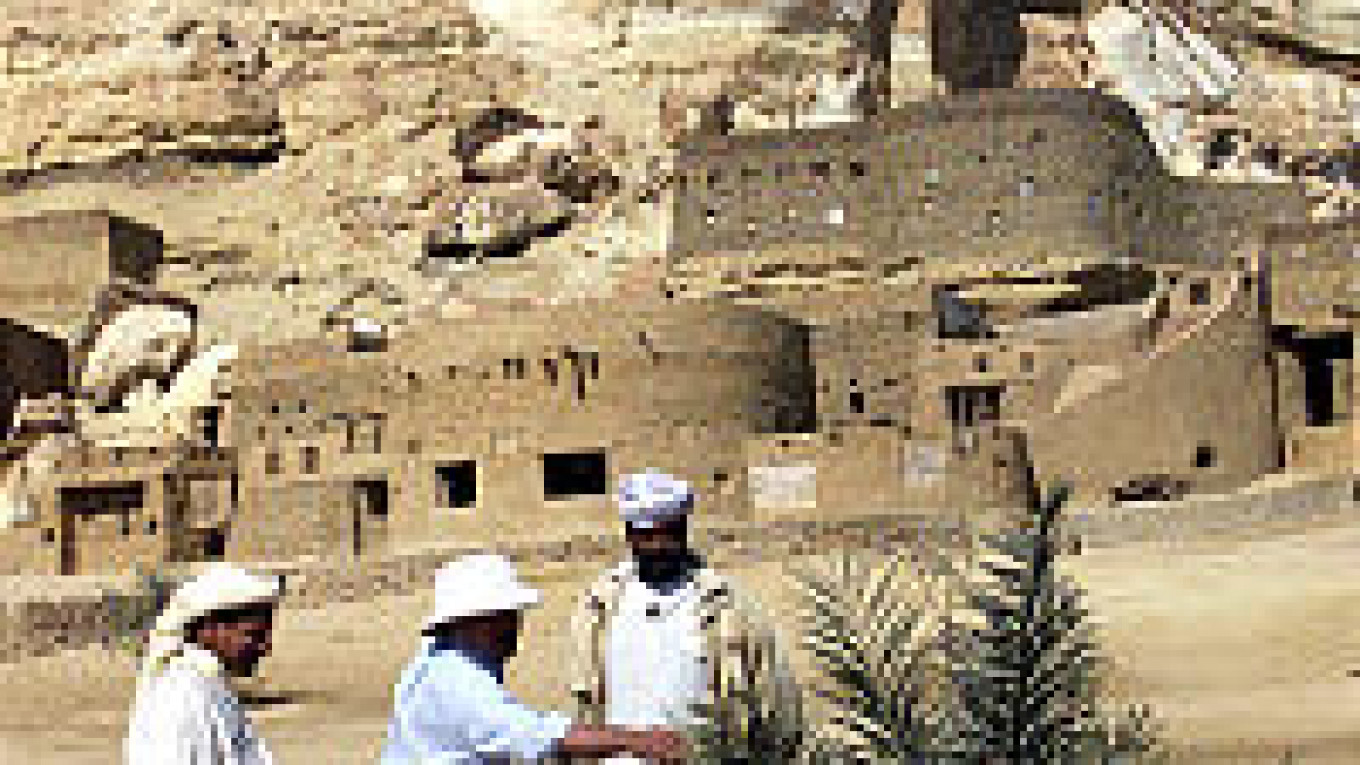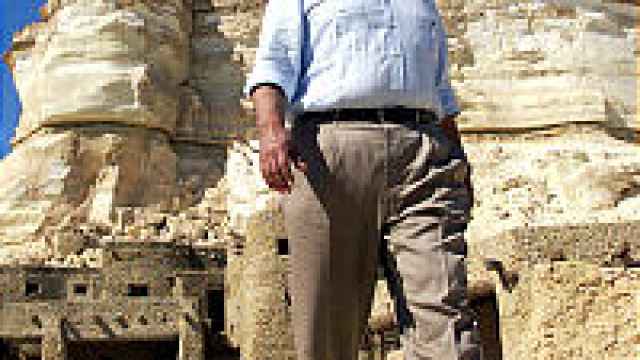But the guests aren't complaining. Stressed business executives, gauche urban intellectuals and maybe the odd writer come from far and wide to stay in this eco-lodge, which owner Mounir Neamatalla refuses to call a hotel.
The exclusive hideaway for the rich has raised concerns that the sleepy oasis of Siwa, with its unique Berber culture and language, is finally on the verge of losing its identity as the outside world encroaches.
But Neamatalla's fans say this is tourism with taste in an effort to stave off the mass variety prevalent in the rest of Egypt, though Neamatalla would never use the word "tourism" himself to describe his venture. "The main aim of this project is not profit but the value added to the population and the quality it provides to its visitors," he said. "Siwa is an attraction for travelers, not tourists."
Guests fork out the huge sums for the solace and beauty of the location, at the foot of a stunning white rock mountain called Adrere Ammellal in the local Berber dialect of the Siwa oasis, which gave the inn its name. The lodge, opened in March 2001, was built with 100 percent Siwan labor so that it would fit entirely into the architectural styles of the oasis.
During the day, sunlight shines through rectangular blocks of semi-transparent salt, brought from nearby salt-water desert lakes, which form the walls of the main restaurant. At night, candlelight turns the salty walls gold. The theme is cultural and natural. The walls of the 34 rooms are adorned with coin-like stones gathered from the desert, Siwan tapestries and carpets. The lodge garden provides organic food for residents. And a natural hot spring, one of 230 in the oasis, serves as a swimming pool. French wine, Limoges china and silverware complete the luxury-with-simplicity feel of the place.
Neamatalla chairs Environmental Quality International, a private firm that began investing in the oasis a few years ago proclaiming eco-sensitive sustained development for Siwa, whose unique identity is threatened by the spread of central Egypt. A 40,000-capacity soccer stadium has been built in the town, where international matches can showcase one of Egypt's more exotic tourist destinations, and a nearby military airport is set for an upgrade to handle an escalation in tourism. At present, Siwa houses only 15 other hotels with a maximum of 15 rooms each.
Neamatalla says he started the project with 100 percent equity and no loans or credits "so as not to be pressured into making a quick profit." He assembled the land from 72 families, who helped him build the lodge in the old Siwan style with roofs made from palm tree stems and furniture from olive tree wood -- the only two crops cultivated in the oasis.
|
| Aladin Abdel Naby / Reuters Neamatalla likes to make sure visitors meet his standards before accepting them. |
Hag Abdel-Qassem is the oldest palm tree cutter in town and one of Siwa's tribal notables. Neamatalla hired him to revive the dying skill and pass it on to young boys who come from a nearby village to work. Abdel-Qassem says the profession almost died out with the central government's increasing hold on the area and the spread of modern concrete houses.
Even if they have the money, some hopeful guests might not be allowed to stay there at all, thanks to a vetting process.
Neamatalla likes to get to know the visitors before accepting them, and those who really want to stay there stick it out until he gives them the green light. Perhaps it's no surprise, then, that the hotel is never fully occupied and often there are no guests at all.
The project does not have any marketing or advertising system. Nor does it rely on brochures or web sites. It depends only on word of mouth and that, Neamatalla says, is how he guarantees the "standard" of his guests.
"The only thing you think about when you go back to your room at night is finding matches to light the candles," said one businessman from Egypt's chaotic capital, Cairo.
For more information, call the Cairo office of Siwa's Eco-lodge at 20-2-738-1327, or visit www.egy.com
A Message from The Moscow Times:
Dear readers,
We are facing unprecedented challenges. Russia's Prosecutor General's Office has designated The Moscow Times as an "undesirable" organization, criminalizing our work and putting our staff at risk of prosecution. This follows our earlier unjust labeling as a "foreign agent."
These actions are direct attempts to silence independent journalism in Russia. The authorities claim our work "discredits the decisions of the Russian leadership." We see things differently: we strive to provide accurate, unbiased reporting on Russia.
We, the journalists of The Moscow Times, refuse to be silenced. But to continue our work, we need your help.
Your support, no matter how small, makes a world of difference. If you can, please support us monthly starting from just $2. It's quick to set up, and every contribution makes a significant impact.
By supporting The Moscow Times, you're defending open, independent journalism in the face of repression. Thank you for standing with us.
Remind me later.



